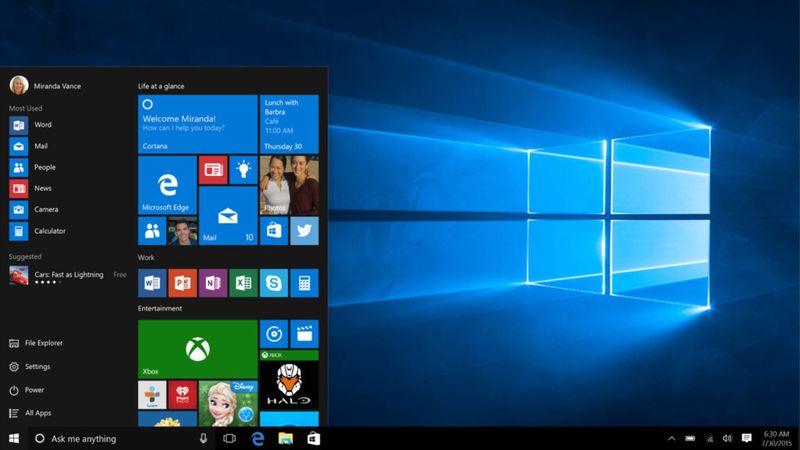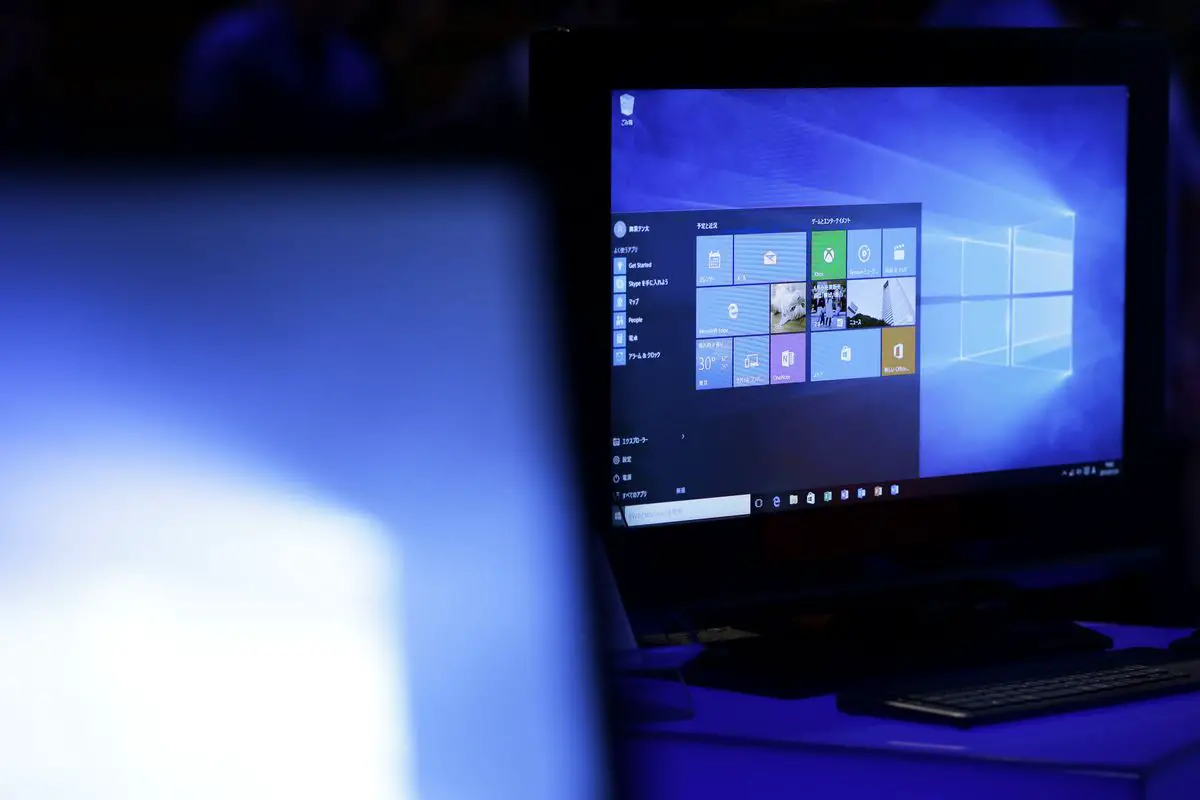The arrival of Windows 11 should not interrupt the development of Windows 10, an operating system that should still offer coverage until 2025 and following the roadmap marked in Microsoft now has a new build for all those who are using Windows 10 in version 1909 and Windows 10 1809 in versions for education and enterprise and LTSC.
These are Build 18363.1766 and Build 17763.2145, which are associated with patch KB5005103 and KB5005102 respectively. These are optional cumulative updates that come with fixes for video playback, fix bugs with OneDrive, and prepare improvements that should arrive in the next Patch Tuesday.
Fixes in Build 18363.1766

- Fixes an issue that prevents the Windows Movies and TV app from playing some videos.
- Updates an issue that resets Microsoft OneDrive synchronization to “Known Folders Only” after installing a Windows update.
- Fixes an issue that prevents users from tracking Distributed Component Object Model (DCOM) activation failures.
- Fixes a threading issue that could cause the Windows Remote Management (WinRM) service to stop working when it has a high load.
- Fixes an issue that causes the Windows Management Instrumentation (WMI) provider host process to stop working. This occurs due to an uncontrolled access violation that occurs when using the Desired State Configuration (DSC).
- Fixes an issue that causes file migration between Distributed File System (DFS) paths that are stored on different volumes to fail. This issue occurs when you implement migration using PowerShell scripts that use the Move-Item command.
- Fixes an issue that prevents you from writing to a WMI repository after a low memory condition occurs.
- Fixes an issue that could prevent an application that uses unthemed windows from being minimized.
- Fixes an issue that prevents the Windows Movies and TV application from playing .mp4 media files that contain Pixel Aspect Ration (PAR) information.
- Fixes an issue that causes the Authentication Mechanism Assurance (AMA) to stop working. This issue occurs when migrating to Windows Server 2016 (or newer versions of Windows) and when using AMA in conjunction with Windows Hello for Business certificates.
- Fixes an issue that prevents Secure Launch from working on some devices.
- Fixes an issue that prevents code integrity rules from working correctly when specifying package family name rules in a code integrity policy. This issue occurs due to incorrect handling of case-sensitive names.
- Fixes an issue that prevents the ShellHWDetection service from starting on a Privileged Access Workstation (PAW) device and prevents it from managing BitLocker drive encryption.
- Fixes an issue in Windows Defender vulnerability protection that prevents some Microsoft Office applications from running on machines that have certain processors.
- Fixes an issue that causes the Input Method Editor (IME) toolbar to appear even when the remote application is closed.
- Fixes a problem with a critical exception that the Open File dialog box cannot handle. As a result, a Microsoft Foundation Class (MFC) application closes unexpectedly.
- Fixes a problem that could occur when configuring the policy, “Delete user profiles older than a specified number of days on system restart”. If a user has been logged in for longer than specified in the policy, the appliance can delete profiles unexpectedly during startup.
- Fixed an issue with the Microsoft OneDrive “Always keep on this device” sync setting. The setting unexpectedly resets to “Known folders only” after installing a Windows update.
- Fixes an issue that could create duplicate integrated local accounts, such as an administrator or guest account, during an in-place update. This problem occurs if you previously renamed those accounts. As a result, the Local Users and Groups MMC snap-in ( lusrmgr. msc ) appear blank with no accounts after the upgrade.
- Increases the default number of entries in the local security authority (LSA) search cache to improve search performance in high search volume scenarios.
- Addresses stop 0x1E error in srv2! Smb2CheckAndInvalidateCCFFile .
- It Fixes a problem that can cause a system to stop working after a deduplication filter detects damage to a scan point. This problem occurs due to changes in the deduplication driver introduced in a previous update.
- Fixes a problem with using the robocopy command with the backup option ( /B ) to correct data loss. This issue occurs when the source location contains tiered Azure File Sync files or tiered cloud files.
- Stops execution of queries in OneSettings APIs from the deprecated Storage Health feature.
Fixes in Build17763.2145

Regarding the Windows 10 update in version 1809 with patch KB5005102, it includes the following improvements and fixes:
- Updates a problem with using the slider in the Open or Save File dialog box when the system language is set to Hebrew. Missing options on file size and other details.
- Updates an issue that resets Microsoft OneDrive synchronization to “Known Folders Only” after installing a Windows update. Fixes an issue that prevents users from tracking Distributed Component Object Model (DCOM) activation failures.
- Fixes an issue that causes the Windows Management Instrumentation (WMI) provider host process to stop working. This occurs due to an uncontrolled access violation that occurs when using the Desired State Configuration (DSC).
- Fixes an issue that prevents you from writing to a WMI repository after a low memory condition occurs.
- Fixes an issue that could prevent you from minimizing an application that uses unthemed windows.
- Fixes a problem that causes the Authentication Mechanism Assurance (AMA) to stop working. This issue occurs when migrating to Windows Server 2016 (or newer versions of Windows) and when using AMA in conjunction with Windows Hello for Business certificates.
- Fixes an issue that prevents code integrity rules from working correctly when specifying package family name rules in a code integrity policy. This issue occurs due to incorrect handling of case-sensitive names.
- Fixes an issue that prevents the ShellHWDetection service from starting on a Privileged Access Workstation (PAW) device and prevents it from managing BitLocker drive encryption.
- Fixes an issue in Windows Defender vulnerability protection that prevents some Microsoft Office applications from running on machines that have certain processors.
- Fixes a problem with using the slider in the Open File or Save dialog box when the system language is set to Hebrew. Missing options for file size and other details.
- Fixes a problem that could occur when configuring the policy, “Delete user profiles older than a specified number of days on system reboot”. If a user has been logged in for longer than specified in the policy, the appliance can delete profiles unexpectedly during startup.
- Fixed an issue with the Microsoft OneDrive “Always keep on this device” sync setting. The setting unexpectedly resets to “Known folders only” after installing a Windows update.
- Fixes a race condition in the Server Message Block (SMB) client that could slow down I/O for a connection until it times out.
Download Build 17763.2145 from this other link.





